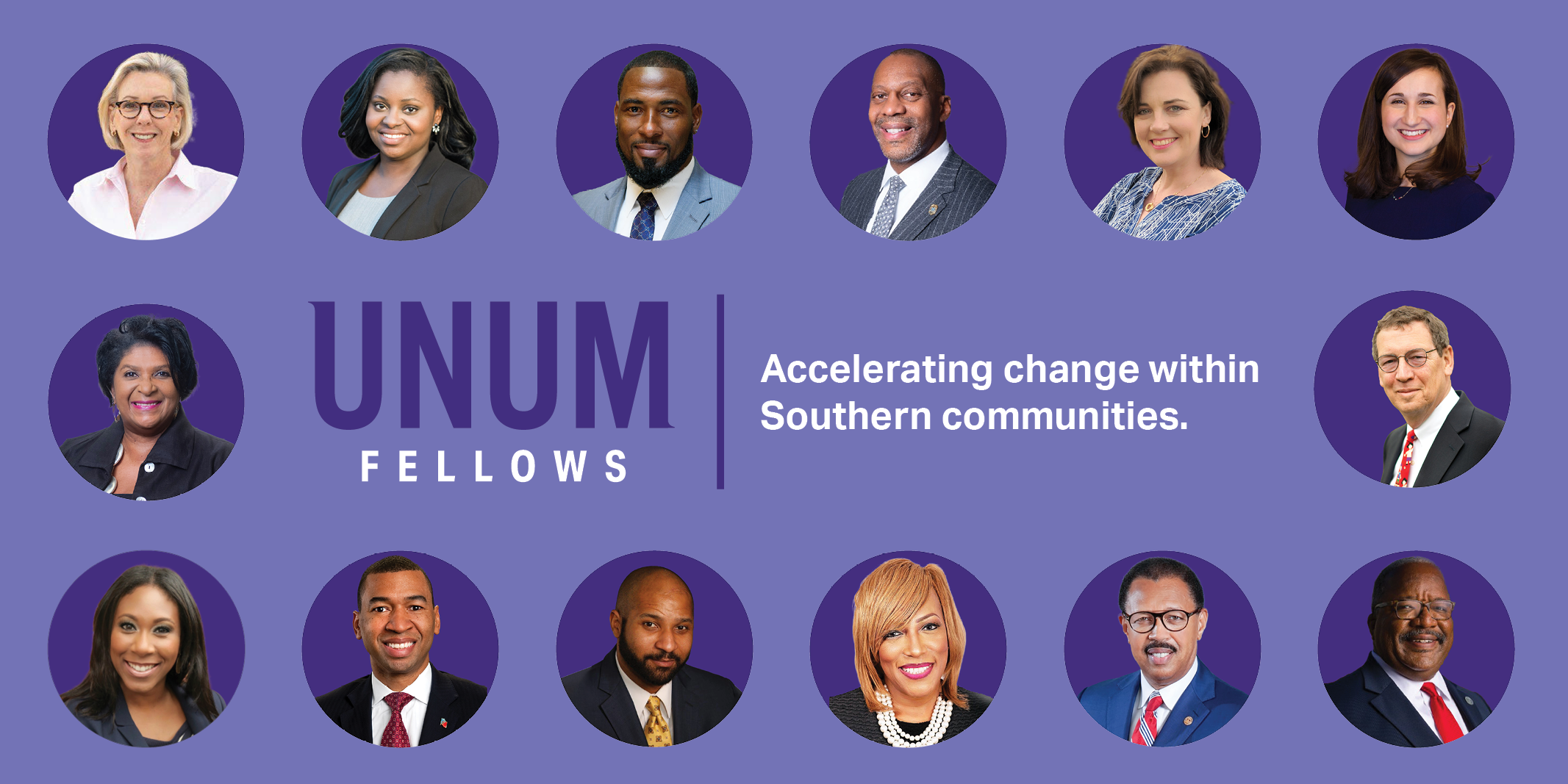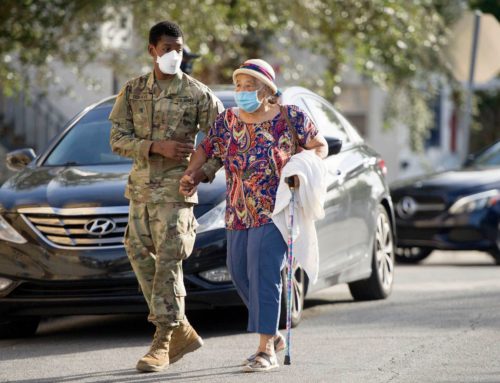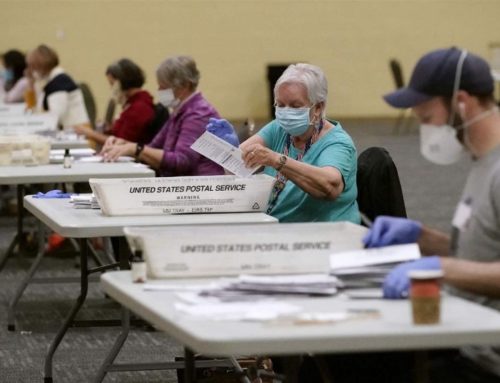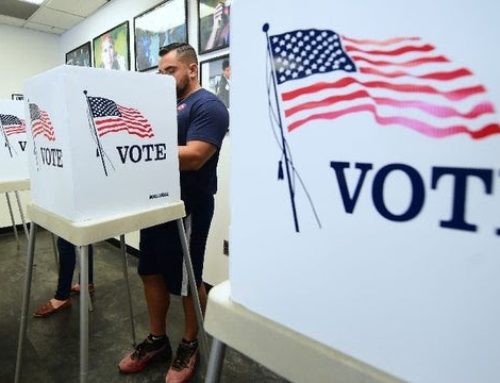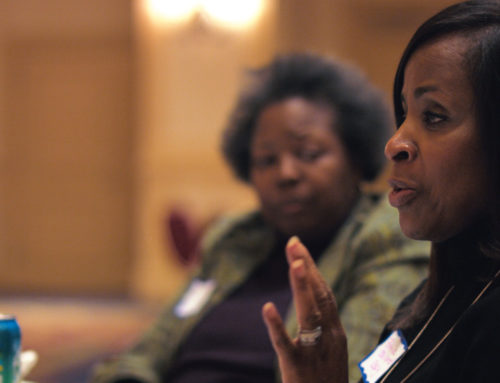E Pluribus Unum Introduces Its Inaugural Class of UNUM Fellows
This week, we’re proud to unveil our inaugural class of UNUM Fellows, a select group of 14 accomplished and diverse Southern elected leaders who will embark on a year-long journey to address inequitable and discriminatory policies and practices within their communities. The program’s first cohort includes elected leaders, from rural mayors to suburban school board members to county commissioners and big city mayors.
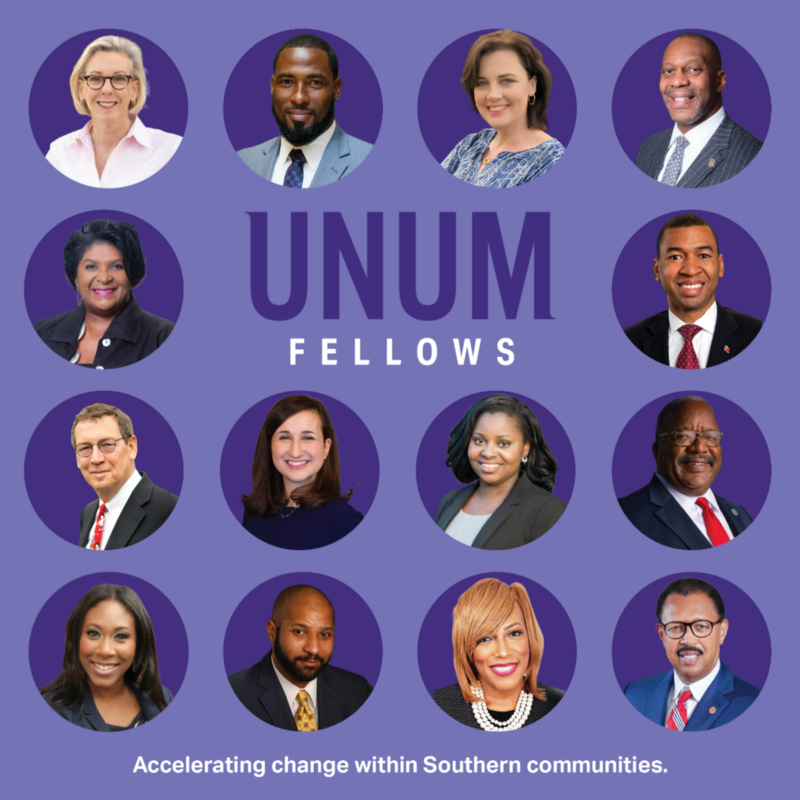
As part of our foundational research journey in 2018, we found that people place a great deal of hope in their local political leadership and better embrace the concept of racial equity when local leadership actively seeks to advance it. Through this opportunity, fellows will gain or expand upon their understanding of how to address racial and economic equity within communities. Each UNUM Fellow will learn from nationally-recognized experts, consult with peers across the South and design and implement an equity-based project that will create sustainable, meaningful change.
Learn more about this program here.
Fellows will leave the program equipped to:
- Foster meaningful participation among key community partners and leaders to drive the advancement of equity goals and projects;
- Advance initiatives — beginning with their Fellowship project — that address racial and economic disparities in communities;
- Cultivate long-term visions for equity within their communities that outlive any single term or administration;
- Talk about racial and economic equity in ways that advance discourse, with a common language and understanding; and,
- Act with urgency with the support of a strong peer network and community.
Participants will gain access to a wide range of nationally recognized partner organizations and individuals that will provide valuable and actionable skillbuilding around racial and economic equity. Program partners include:
- Brookings Metropolitan Policy Program;
- Center for American Progress (CAP);
- The Center for Law and Social Policy (CLASP);
- FrameWorks Institute;
- Government Alliance on Race and Equity (GARE), a project of Race Forward;
- Hope Policy Institute;
- National League of Cities University (NLCU);
- PolicyLink and,
- What Works Cities.
Truth. Action. Reconciliation. Conversation Series Focuses on Health Equity
EPU’s weekly conversation series on how we move forward together to address the issues that surround race and equity in the South
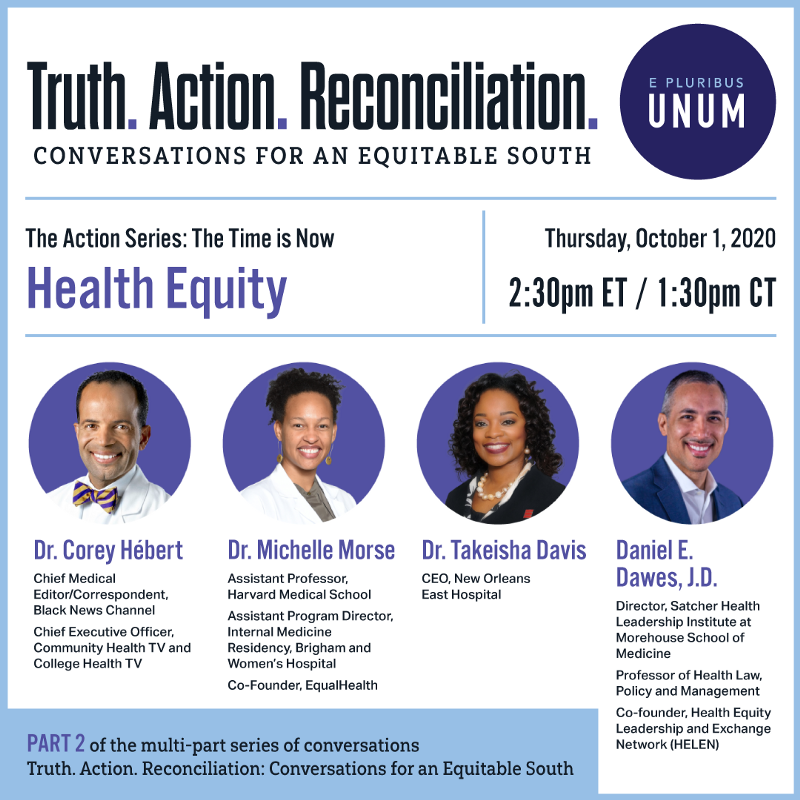
Thank you all for joining us for our second installment of the “Action” Series last week.
Missed Our Conversation On Criminal Justice? Check It Out!
Now that we’ve established the lasting impacts of medical racism in the U.S. health care system, we will discuss how to redress them within the health system in the U.S.
In this conversation, our panelists will explore the restoration of trust between Black patients and those who provide their health care. They will explore systems of medical education that train providers to offer care that works for and serves everyone.
How can we ensure that Black patients and other patients of color receive respectful, highest-quality care? What kind of work do we have to do to make the system one that Black people can trust with their health?
THE ACTION SERIES: The Time is Now
Health Equity
Thursday, October 1, 2020
2:30 pm ET/ 1:30 pm CT
Deadline to Complete 2020 Census Is Pushed Back to Original October 31 Date
In the early morning hours on Friday, Judge Lucy H. Koh issued a preliminary injunction preventing the Trump administration from winding down the census count by September 30, a month before the scheduled completion date of October 31. Below is a response statement from our founder and president Mitch Landrieu:
“This updated deadline will give often undercounted communities a better chance to complete the census and help reduce disparities that have been allowed to fester for generations. It is a necessary step toward achieving racial and economic equity, especially for those of us living in the South. The 2020 Census will direct as much as $1.5 trillion through more than 300 programs for the next decade and divvy up political power through reapportionment and redistricting. Without an accurate census count, our collective recovery from COVID-19 will be far more difficult in the future. Ultimately, undercounts result in communities with means getting more resources than those without, creating even larger divides. E Pluribus Unum will continue to engage our communities across the south to ensure we get to a more complete count.”

